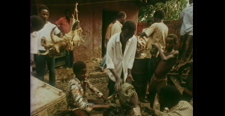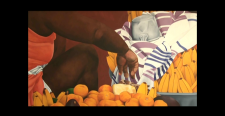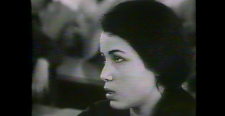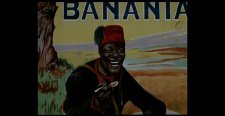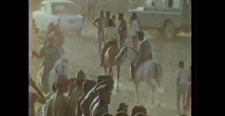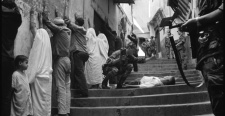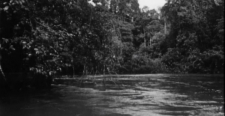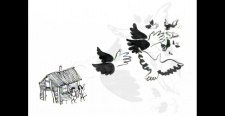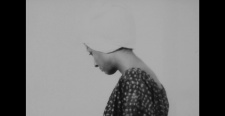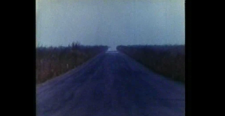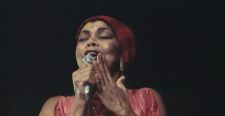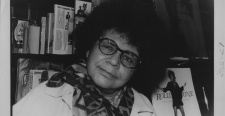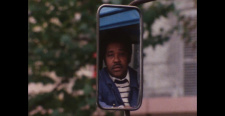Retrospective / Special Guest: Sarah Maldoror
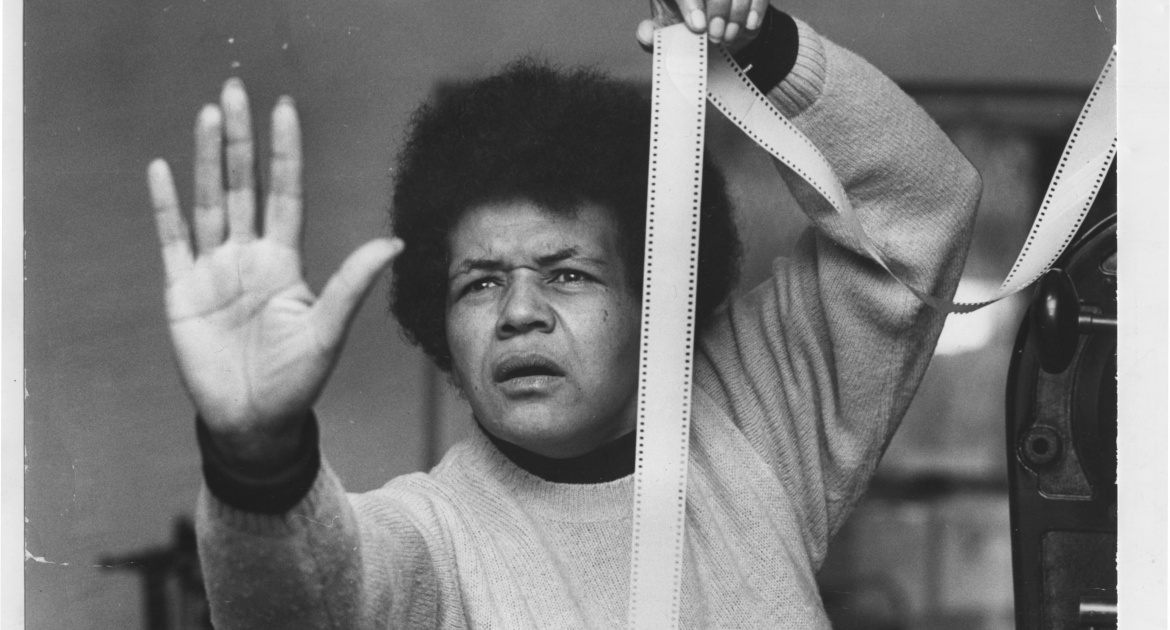
Sarah Maldoror, Négritude poet and filmmaker
This first retrospective dedicated to Sarah Maldoror (France, 1929) rediscovers the work of this crucial filmmaker who, despite her enormous involvement in the decolonialization movement and struggles for social diversity since 1960, remains widely unknown. Born Sarah Ducados to an Antillean father and French mother, she took the stage name of Maldoror in honor of The Songs of Maldoror by Lautréaumont, a poet admired by surrealist artists. This gesture was meant to revitalize surrealism from the postulates of Négritude, the artistic, social and political movement for which this filmmaker would become a great exponent. Sarah Maldoror's work seeks to find a poetic way of expressing an alternative identity and the promise of a future society offered by the new black culture emerging from anticolonialism and pan-Africanism during the 1960s.
Sarah Maldoror's origins are in the theater. In the late 1950s, she founded and presided over Les Griots ("The Troubadours"), the first drama company in France composed solely of African and Afro-Caribbean actors, who would work along with Jean Genet to create the play Les negres under the direction of Roger Blain. This theatrical dimension, understood through its oral and performative qualities, would be critical to the way she would conceive of her filmmaking. In 1961, Maldoror traveled to Moscow to study film, where she met the great Senegalese filmmaker Ousmane Sembène and learned a dynamic and syncopated editing style that would blend with the rhythms of jazz and black music. After her time in the Soviet Union, Maldoror joined the struggle of African emancipation movements, her films accompanying the essays by Amílcar and Luis Cabral and those by Joaquim and Mario de Andrade. Denouncing the colonialist system was prevalent in her best-known films, such as Monangambée, Sambizanga and La battaglia di Algeri, a film on which she was assistant director to Gillo Pontecorvo. Shot in Algeria and the Congo at the height of the anti-colonial revolts, these films denounce the repression of the people and the use of torture against the guerrillas, intermingled with the filmmaker's characteristic anti-racist and feminist vision of emancipation. Her work is starkly political, although it is so far from being propaganda that the Algerian revolutionary government itself seized her first feature film Des fusils pour Banta, still missing today, after considering it too ambiguous. The exciting promise of a society without Western tutelage would become a theme running through a new line of work, which explores African identity through its festivities and carnivals, made in collaboration with William Klein in the huge fresco of the Festival panafricain d'Alger, which features the carnivals of Cape Verde and Guinea Bissau. Following this combative period, Maldoror would take an approach to Négritude as a poetic of difference.
A cultural movement founded by poets Aimé Cesaire (Martinique, 1913-2018), Leopold Senghor (Senegal, 1906-2001) and Leon G. Damas (France, 1912-1978), based on Pan-Africanism, on anticolonialism and the synthesis between Marxism and Surrealism, Négritude would be a determining influence on Sarah Maldoror. So much so that we might define her film as a translation of these three poets' writings into images and sounds. The idea of a relation-based identity, the presence of orality and the poetic word and the sonority of music with a frenetic rhythm will give rise to a kind of film understood to be a visual manifesto of Négritude. This is the case in the film portraits she made of the founders of the movement and of black women artists, as well as in the popular and anti-racist kind of fiction film she made for French television, including such films as Un dessert pour Constance and Scala Milan A.C., in which she humorously breaks down cultural and national stereotypes.
Chema González
Head of Cultural Activities at the Reina Sofía Museum
Organized by: Museo Reina Sofía y DocumentaMadrid 2019 (16º Festival Internacional de Cine Documental)
Curator: Chema González
With the support from:
Institut français d´Espagne
Acknowledgements:
Embajada de Argelia en España, Cinemateca de Argelia, Ministère de l’Europe et des Affaires étrangères, Centre national du cinéma et de l’image animée (CNC) y CNRS Images.
SESSIONS
Session 1. Wretched of the Earth I: The Anti-Colonial Revolt
Saturday, 11 May 2019 - 7pm. Cineteca, Sala Azcona
Monangambée
Sarah Maldoror / 17’ / 1969 / Angola, Algeria
Sambizanga
Sarah Maldoror / 102’ / 1972 – 1973 / Angola
Introduced by Sarah Maldoror
Session 2. Wretched of the Earth II: The Anti-Colonial Revolt
Sunday, 12 May 2019 - 7pm. Museo Nacional Centro de Arte Reina Sofía. Sabatini Building, Auditorium
La battaglia di Algeri
Gillo Pontecorvo / 121’ / 1965 / Italy, Algeria (assistant director: Sarah Maldoror)
Introduced by Annouchka de Andrade and Olivier Hadouchi
Session 3. Wretched of the Earth III: The Anti-Colonial Revolt
Monday, 13 May 2019 - 7pm. Museo Nacional Centro de Arte Reina Sofía. Sabatini Building, Auditorium
Préface à des fusils pour Banta
Mathieu Kleyebe Abonnenc / 28’ / 2011 / French Guiana
Round-table discussion between Annouchka de Andrade, Olivier Hadouchi and Mathieu Klebeye Abonnenc, moderated by Chema González
Session 4. Earth and Carnival I
Tuesday, 14 May 2019 - 9:30pm. Cineteca, Sala Borau
Festival panafricain d’Alger
William Klein / 90’ / 1970 / France, Algerie, Germany (assistant director: Sarah Maldoror)
Session 5. Earth and Carnival II
Wednesday, 15 May 2019 - 7pm. Cineteca, Sala Borau
A Bissau, le carnaval
Sarah Maldoror / 18’ / 1980 / Guinea-Bissau
Fogo, l´ile de feu
Sarah Maldoror / 32’ / 1979 / Cape Verde
Un carnaval dans le Sahel
Sarah Maldoror / 15’ / 1979 / Cape Verde
Session 6. Poetry: Aimé Cesaire
Thursday, 16 May 2019 - 7pm. Museo Nacional Centro de Arte Reina Sofía. Sabatini Building, Auditorium
Et les chiens se taiseient, d'Aimé Césaire
Sarah Maldoror / 13’ / 1978 / France
Aimé Césaire au bout du petit matin
Sarah Maldoror / 57’ / 1977 / France
Session 7. Poetry: Two Worlds, Two Poets
Friday, 17 May 2019 - 7pm. Museo Nacional Centro de Arte Reina Sofía. Sabatini Building, Auditorium
Louis Aragon, un masque à Paris
Sarah Maldoror / 20’ / 1978 / France
Léon G. Damas
Sarah Maldoror / 26’ / 1994 / France
Session 8. The Women
Saturday, 18 May 2019 - 7pm. Museo Nacional Centro de Arte Reina Sofía. Sabatini Building, Auditorium
Ellas
Ahmed Lallem / 22’ / 1966 / Algeria, France (assistant director: Sarah Maldoror)
Toto Bissainthe
Sarah Maldoror / 4’ / 1984 / Haiti
Ana Mercedes Hoyos
Sarah Maldoror / 13’ / 2009 / France, Colombia
Session 9. Parisian Jazz: Popular Anti-Racist Film
Sunday, 19 May 2019 - 7pm. Museo Nacional Centro de Arte Reina Sofía. Sabatini Building, Auditorium
Un dessert pour Constance
Sarah Maldoror / 60’ / 1980 / France
Scala Milan A.C.
Sarah Maldoror / 18’ / 2003 / France
Les oiseaux mains
Sarah Maldoror / 1’ / 2005 / France



 DocumentaMadrid
DocumentaMadrid
